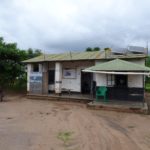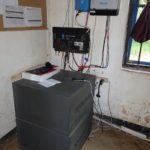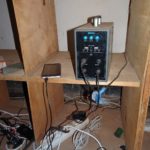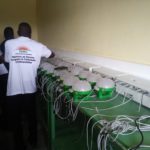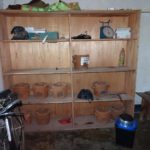General information
Benefits
Possible challenges
General information
An energy kiosk is a station where electricity is generated to provide certain related services like rental of batteries/solar lamps, phone charging and businesses like a barber shop.
It is most commonly powered by solar panels but other energy sources like hydro or wind can also work. This energy is then stored in batteries for reliable supply.
Services of energy kiosks include:
- Charging stations: people bring their electronic devices like a torch or a phone and get them charged for a small fee
- Rental of batteries that can be charged at the kiosk and sale of compatible basic energy devices like torches, tube lights or LED lamps
- Rental and sale (pay-as-you-go scheme) of Pico Solar Lamps and Solar Home Systems
- Energy-based services: a solar-powered barbershop, a popcorn making machine, cold drinks from a fridge, a peanut grinding mill etc.
- A place to come together, chat and foster creative ideas for further development
Benefits
- Energy kiosks can be self-sustainable after an initial start capital as they generate income for the kiosk staff and for occurring maintenance costs through the rental and sale system.
- They inquire low investment at the customer side.
- They strongly involve the local community. It starts with the kiosk staff but as the project evolves further people can get involved like creative minds with engineer and business skills. There can be strong mutual relationships to surrounding health and educational facilities or already existing small businesses, e.g. linking up with cleaner cooking stove producers, offering lights to schools and hospitals. The opportunities are endless and once people get creative there is much potential for a snowball effect of development.
- There are existing approaches on both smaller and larger scale.
Possible challenges
The costs connected to the set-up and maintenance (need to replace batteries around every 5 years) of electricity generation are often too high for a rural community. The transition from an NGO funded project to self-sustainability is a challenge. At the point where funding is withdrawn and the responsibility is handed over many projects tend to fail.

